If you’re concerned that you or someone you love might have a mental health or substance abuse problem, you’re not alone. Fifty-three million American adults live with mental health disorders or addiction. Almost 10 million of them endure a substance addiction and a mental health disorder at the same time.
At NuLife Behavioral Health, we can help. We understand that a person’s life doesn’t slow down, even when they need treatment. That’s why we offer outpatient services that meet your need for high-quality rehab programs that fit your busy schedule.
We’re located at 1400 Lake Cook Road, Buffalo Grove, Illinois,19 minutes from Arlington Heights, Illinois.
To get from Arlington Heights, Illinois, to NuLife Behavioral Health in Buffalo Grove, Illinois, follow these directions:
- Head west on E Euclid Ave toward N Evergreen Ave (30 sec, 0.1 mi)
- Continue on N Dunton Ave to N Arlington Heights Road (2 min, 0.6 mi)
- Continue on N Arlington Heights Rd
- Take N Buffalo Grove Rd and Lake Cook Rd to Johnson Dr in Wheeling, Illinois (15 min, 6.5 mi)
- Continue on Johnson Dr to your destination in Buffalo Grove, Illinois (51 sec, .2 mi)
What We Treat
Mental Health Treatment at NuLife Behavioral Health Illinois
- Mental health disorders are common in the US. The following are a few of the more common mental health conditions we treat at NuLife Behavioral Health:
- Anxiety. Anxiety is the most common family of psychological disorders in the nation, affecting 19 million adults. Although all forms of anxiety can be debilitating, anxiety responds well to treatment.
- Depression. Depression robs a person’s life of joy. It’s much more than passing sadness. Depression can consume a person’s life unless they seek treatment.
- Trauma & Post-Traumatic Stress Disorder (PTSD). Although combat is responsible for many cases of PTSD, other events like assault, rape, neglect–even surviving a serious car accident–can produce PTSD.
- Bipolar Disorder. Bipolar disorder’s effects are much more devastating than regular changes in one’s mood. Like the rest of these disorders, it’s a condition that can be incapacitating, but with the proper treatment, bipolar disorder can be controlled.
Addiction Treatment
- Alcohol. Alcohol is the most commonly abused substance in the US and the world. For millions, drinking leads to alcohol addiction, but alcohol addiction, commonly called alcoholism, can be treated. Professional addiction treatment can stop the progression of alcoholism in its tracks.
- Prescription Drugs. Prescription painkillers like oxycodone and sedatives such as Xanax, Valium, and Ativan have legitimate uses but can also be addictive.
- Heroin. Heroin is a highly addictive opioid in the same family as many prescription analgesics. Unlike medications, heroin is illegal and can be lethal when mixed with alcohol or other substances.
- Cocaine. Cocaine delivers euphoria and energy to its users. As an illegal stimulant, it’s addictive and produces serious harm to the heart and nervous system.
- Meth. Crystal methamphetamine is a profoundly addictive stimulant. Unlike other substances, it can cause addiction within a few uses. Although it can cause severe damage to a person’s health–and life–meth addiction responds to treatment.
Our facility in Buffalo Grove Illinois offers all of the following programming options:
Our levels of care include traditional outpatient services and more intensive outpatient treatment. These more involved options include our Intensive Outpatient Program (IOP), designed as a step between partial hospitalization and regular outpatient counseling, and partial hospitalization (PHP), which occurs 5 days a week, 4 to 5 hours a day. At all levels of care, participants return home in the evenings.
Our treatment programs provide all of the following:
- Individual Therapy: One-on-one sessions with a mental health professional to address the emotional and behavioral habits that fuel a client’s mental disorders, substance addiction, or both.
- Group Therapy: Therapy sessions involving multiple patients, often focused on shared experiences. Group therapy topics include coping strategies, substance abuse recovery, stress management, and living life on life’s terms.
- Family Therapy: Sessions involving the patient’s family members address family relationships and how they affect the patient’s mental health and recovery.
- Substance Abuse Treatment: At NuLife in Illinois, we offer medication-assisted treatment, counseling, and support groups for individuals struggling with addiction.
- Psychiatric Services: These Include evaluation, diagnosis, and medication management for mental health disorders.
- Support Groups: Peer-led groups provide support and a sense of community for individuals facing similar challenges.
- Educational Programs: IOP and PHP offer workshops or seminars on topics related to mental health and wellness.
- Aftercare and Relapse Prevention: Ongoing support to maintain recovery and prevent relapse after initial treatment phase.
NuLife’s Programming Options
We offer several levels of care, tailored to your unique needs. They include our partial hospitalization program and an intensive outpatient program. Both of these treatment options allow participants to go about their normal routines.
PARTIAL HOSPITALIZATION PROGRAM
Our partial hospitalization program (PHP) is for people who need more support than a traditional outpatient program offers but don’t require 24/7 inpatient treatment. PHP typically consists of six to eight hours of programming daily, five to seven days per week.
Partial hospitalization offers individual, group, and family therapy, and an array of holistic treatments, including music, yoga, acupuncture, and experiential therapies.
INTENSIVE OUTPATIENT PROGRAM
IOP typically consists of 12 hours of programming a week. While in this program, clients continue to build healthy coping skills. In our IOP, clients participate in small interactive groups and individual sessions with their primary therapists.
Typically, clients attend sessions for 12 hours weekly. Clients attend three group therapy sessions weekly and individual counseling sessions with a licensed mental health professional. We also encourage clients in our substance abuse treatment program to participate in 12-step support meetings, which can be a way to continue building a support system after treatment.
All our treatment programs offer cognitive behavioral therapy (CBT) and dialectical behavior therapy (DBT), two of the gold standard treatments for recovery from mental health disorders, substance addiction, or both.
Dual Diagnosis Treatment
Dual diagnosis, or co-occurring disorders, happens when a person has a mental health disorder and substance addiction at the same time. Dual diagnosis care requires the advanced treatment you’ll find at NuLife Behavioral Health in Buffalo Grove, Illinois.
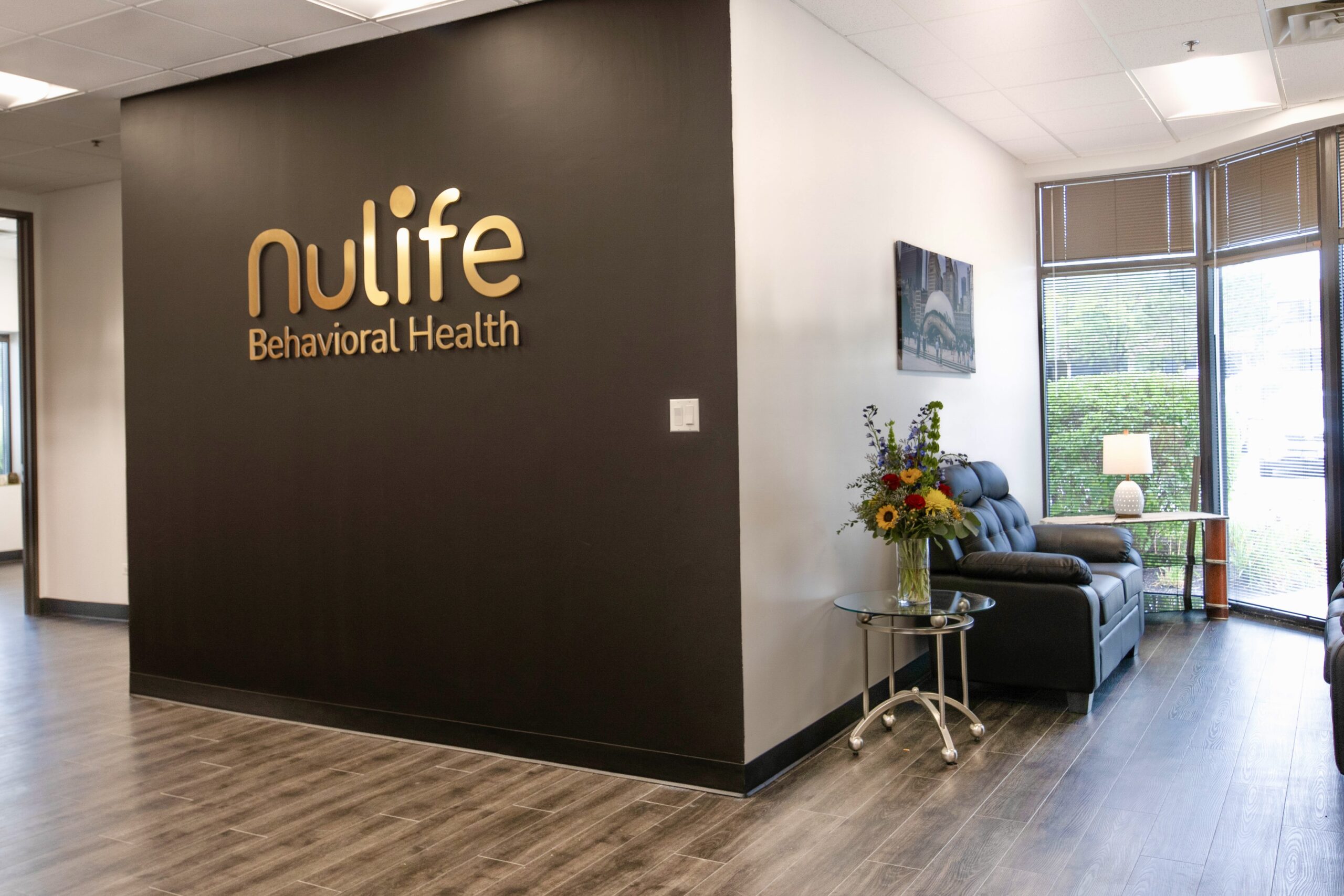
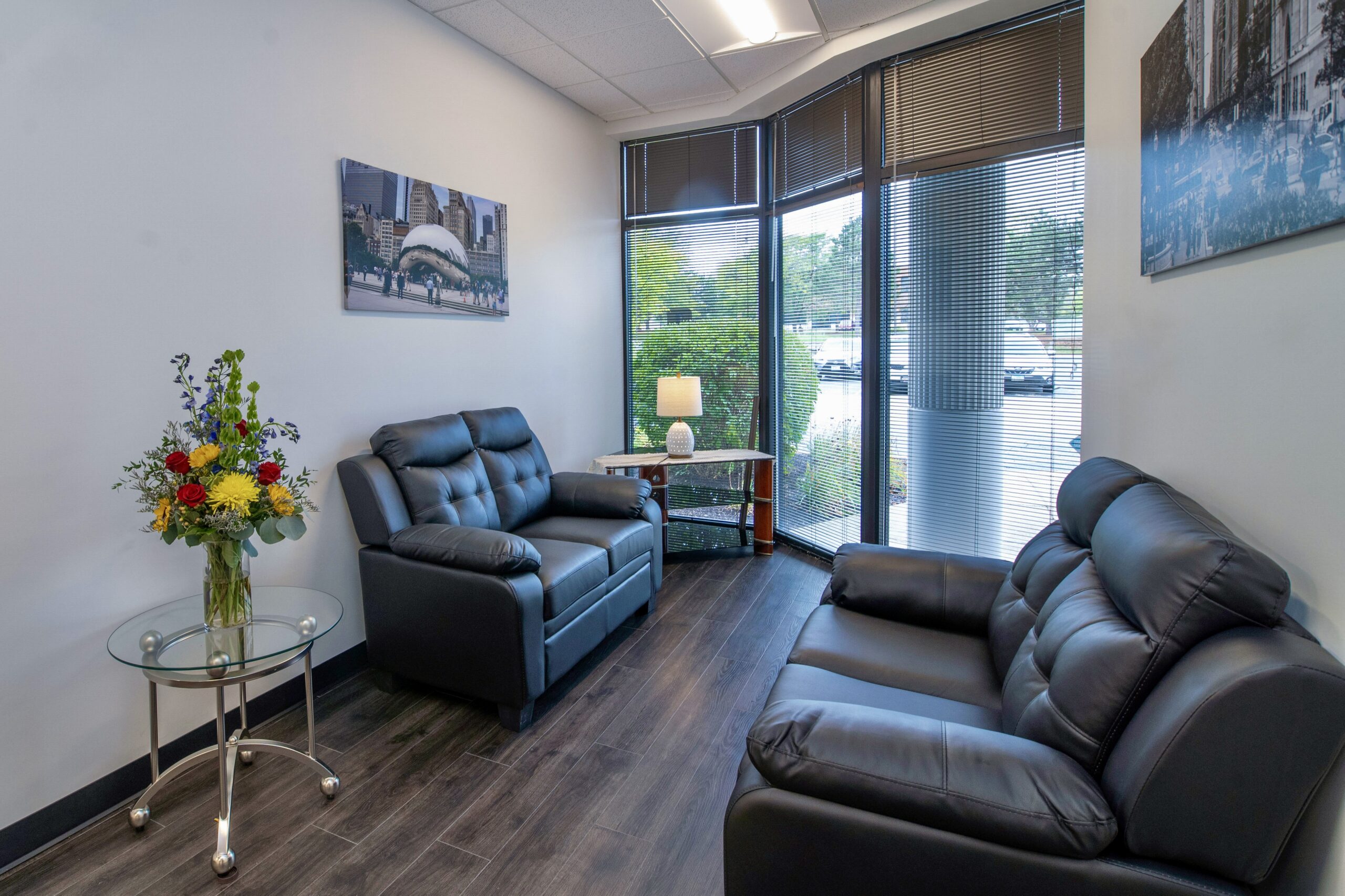
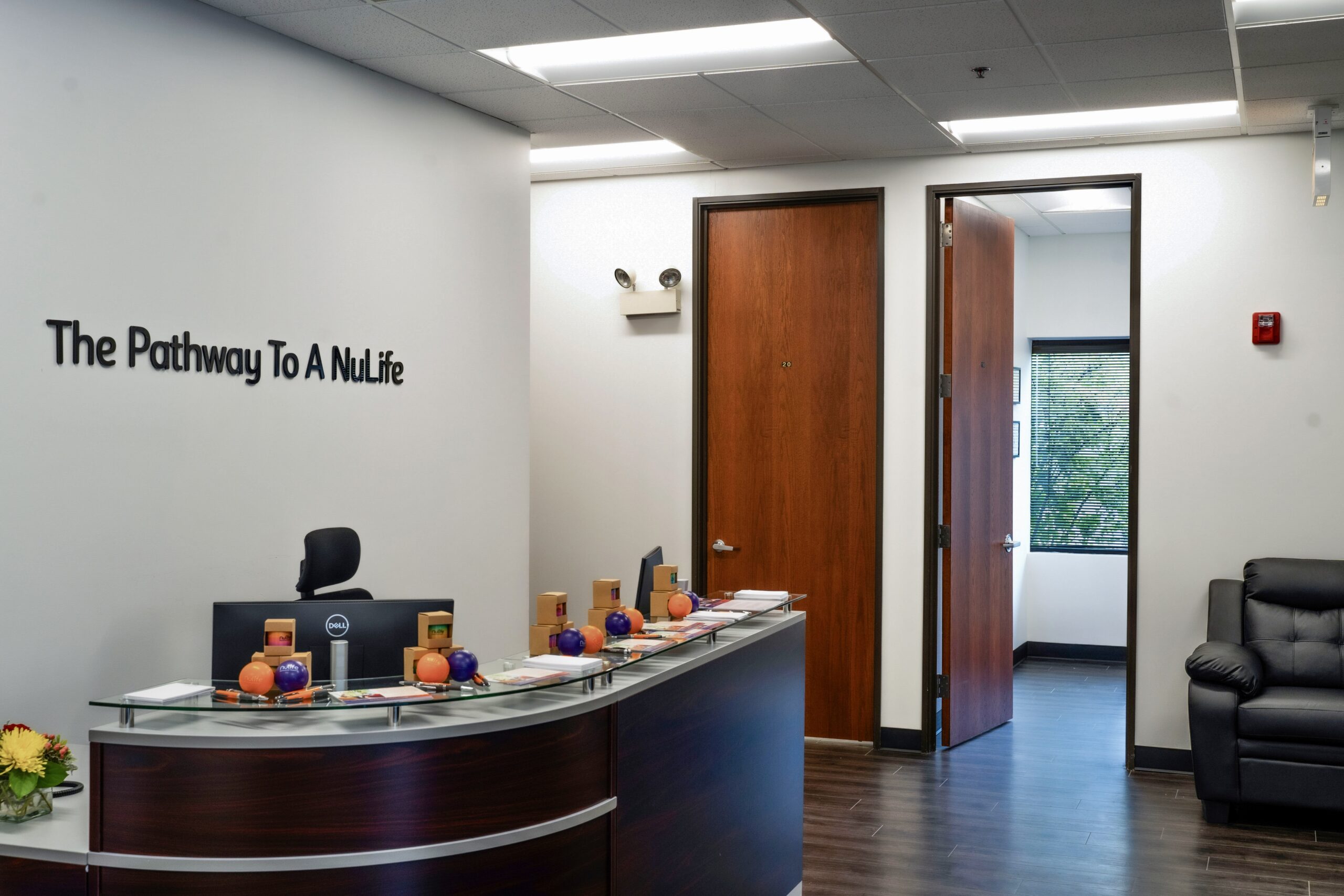
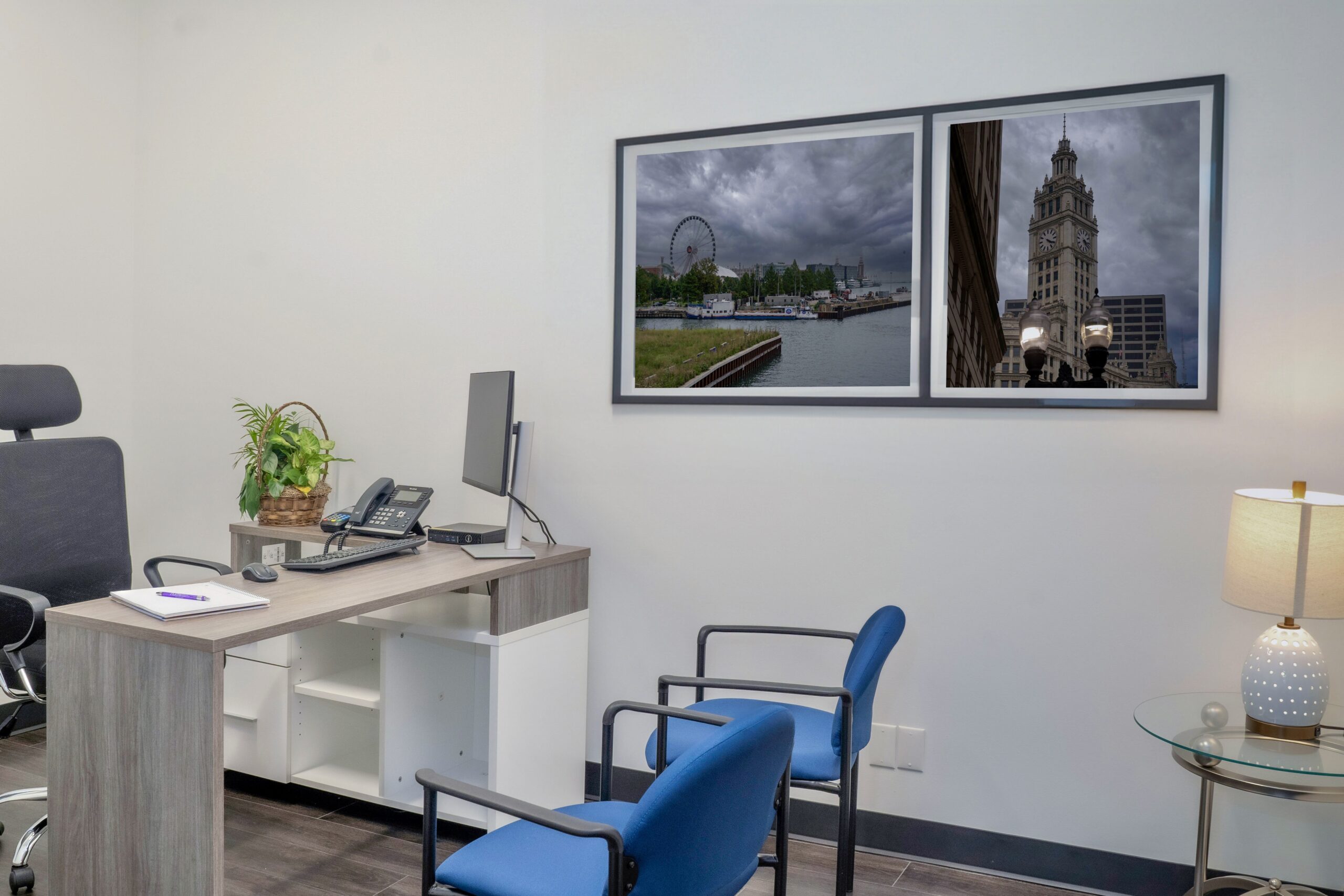
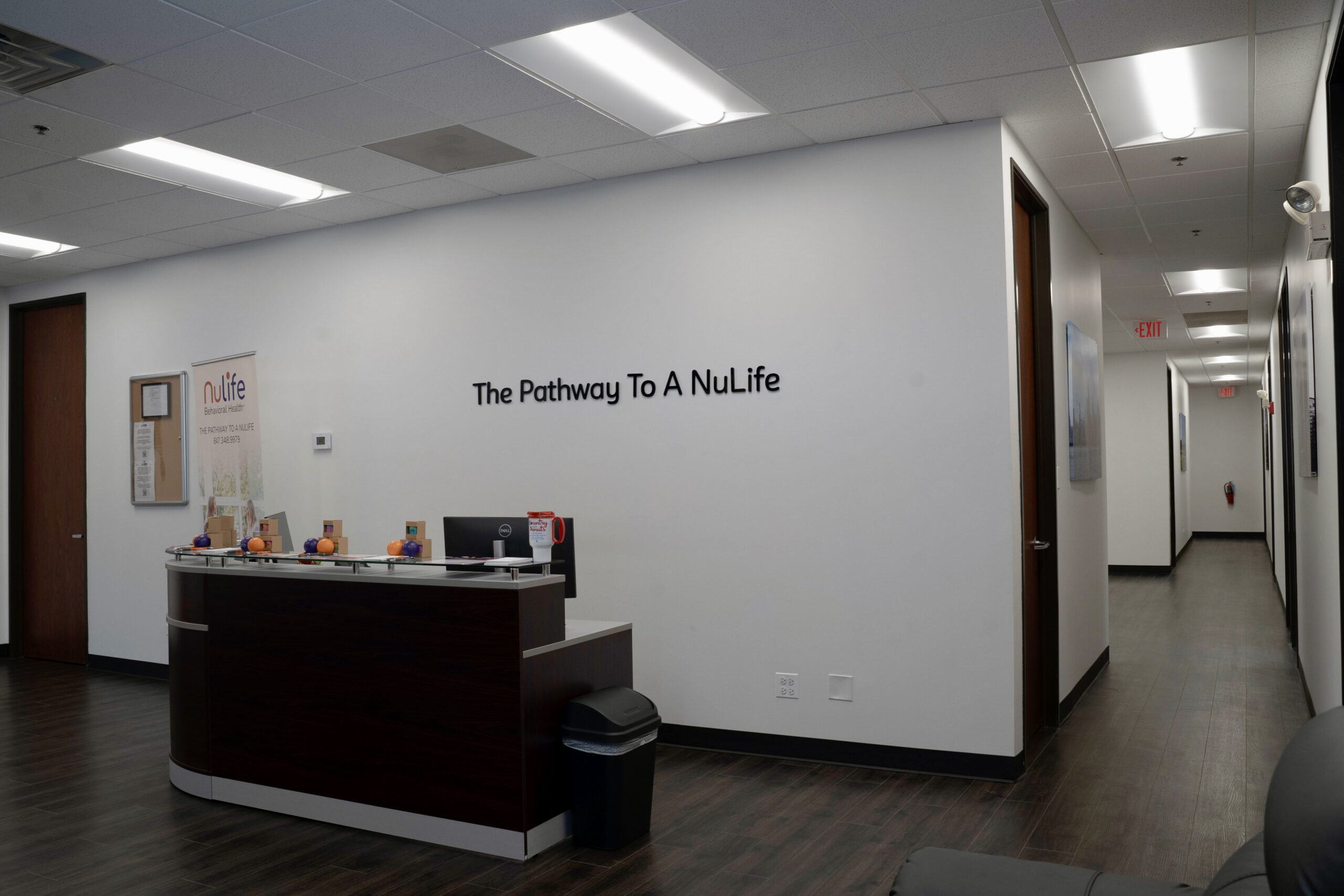
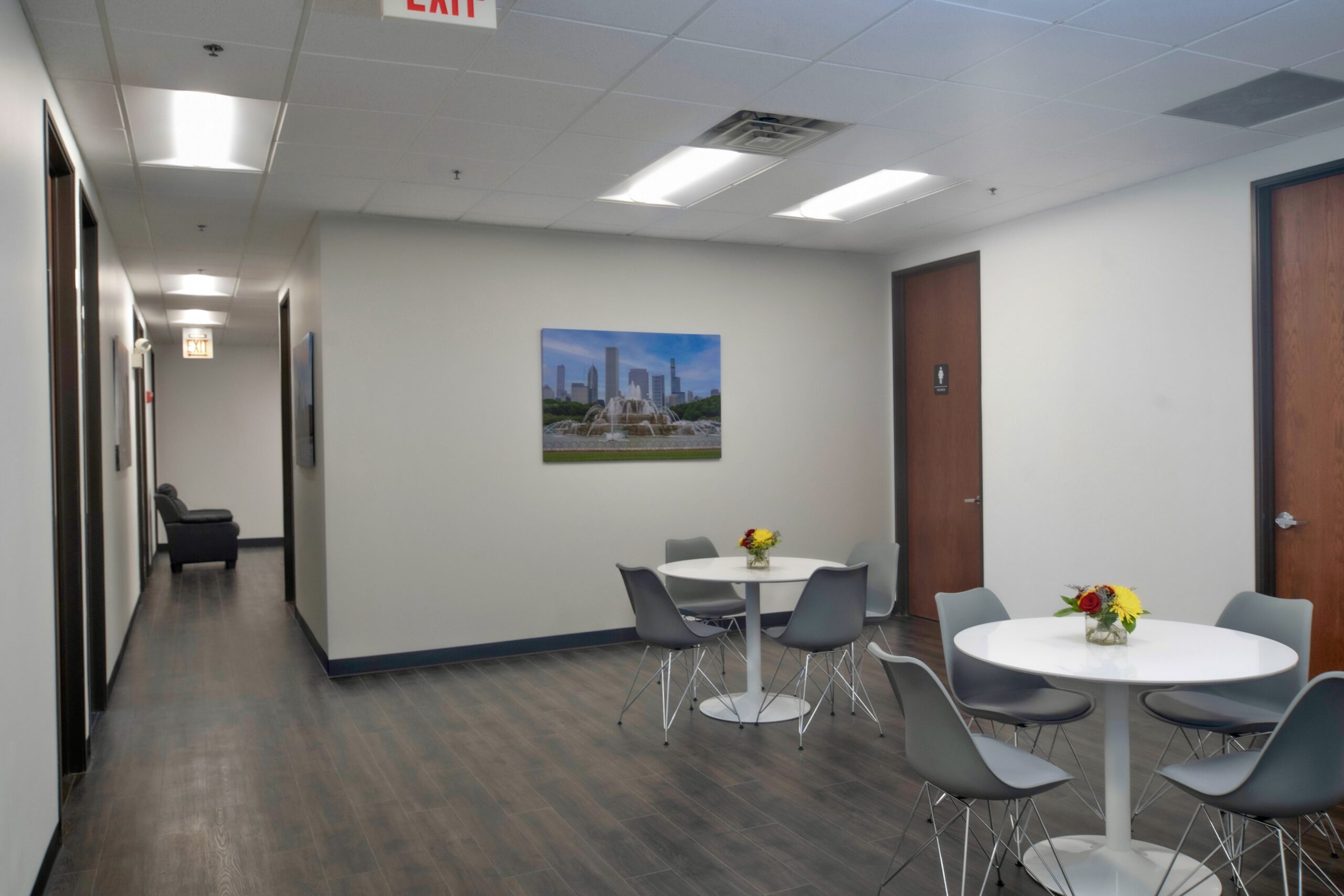
Insurances We Accept
NuLife Behavioral Health accepts most insurances, including:


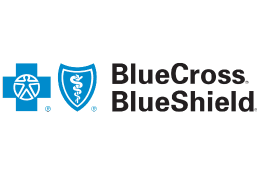


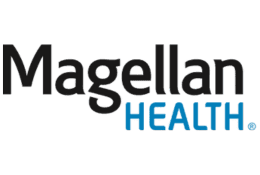
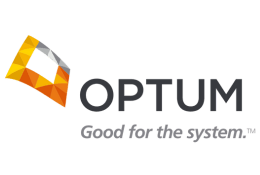
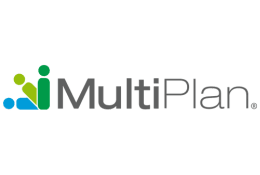
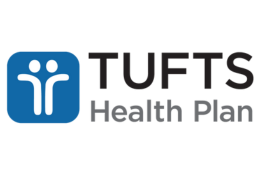
If you don’t see your insurance listed, call us now to talk to one of our admissions coordinators. We will check your insurance and verify your coverage.
Addiction Resources for Arlington Heights, Illinois
AA Meetings
Fridays at 8:00 pm, Our Savior’s Church at 1234 Arlington Heights Road, Arlington Heights, Illinois, hosts an Alcoholics Anonymous Men’s Step Meeting (men only).
Alcoholics Anonymous meets every Sunday at 6:30 am at the Palatine Club, 887 East Wilmette Road, Palatine, IL. You may also attend this meeting online. AA also offers a Saturday 8 pm meeting 887 East Wilmette Road. This is an open meeting–all may attend.
You may call the AA answering service at 847-359-3311 for more information or visit the Palatine Club website for a comprehensive list of AA, NA, and Codependents Anonymous meetings.
AA of Illinois District 21 also maintains a complete list of Alcoholics Anonymous meetings near Arlington Heights, Illinois.
Narcotics Anonymous (NA) Meetings in the Arlington Heights Area
On Monday evenings at 8 pm, Saint Simon’s Episcopal Church hosts an open meeting of Narcotics Anonymous at 717 West Kirchhoff Road in Arlington Heights, Illinois.
On Wednesdays at 10 am, the First United Methodist Church at 1903 East Euclid Avenue, Arlington Heights, Illinois, offers an NA meeting.
Every Saturday at 8 pm, the First United Methodist Church at 1903 East Euclid Avenue, Arlington Heights, Illinois, hosts an NA meeting.
Every Saturday at 8:30 pm, there is an NA meeting at the Lutheran Church of the Cross at 2025 South Goebbert Road, Arlington Heights, Illinois. You may find more details here.
SMART Recovery
If you’re interested in a non-12-step program, SMART Recovery might be for you. You may find a list of SMART Recovery program meetings here.
Medicaid/County Resources
Cook County offers a variety of services at low to no-cost for mental health and substance abuse. You may read about those here. The Illinois Department of Human Services also maintains an extensive list of services for mental health and substance abuse.
Mental Health Resources for Arlington Heights, Illinois
The Arlington Heights Memorial Library maintains an extensive list of low and no cost resources for the Arlington Heights community and surrounding areas.
Ascension Center for Mental Health in Arlington Heights, Illinois, accepts Medicaid for treating mental health disorders. They’re located at 3436 North Kennicott Avenue, Arlington Heights, Illinois. You may phone them at 847-952-7460.
Codependents Anonymous has an open meeting every Tuesday at 10 am at All Saints Lutheran Church, 630 S. Quentin Road, Arlington Heights, Illinois, 60067.
Mental Health Support Groups in Arlington Heights, Illinois
- An LGBTQ+ counseling and support group meets every Wednesday from 6:30 pm to 8:30 pm. The meeting is hosted at Barrington Behavioral Health and Wellness, 1242 West Northwest Highway, entrance 6, Arlington Heights, Illinois. You may call 224-385-0208 for more details.
- Transgendered Support Group. This group meets at Guided Path Psychological Services at 201 East Dundee, Arlington Heights. You may contact the group host at 847 558-6573.
- The Depression and Bipolar Support Alliance meets weekly at the Palatine Public Library at 700 N. North Court, Palatine, IL 60067. This group meets on the 1st and 3rd Wednesday of each month at 7:00 pm. If you have any questions about this group, you may call 847-359-4140.

Learn More at NuLife Behavioral Health Illinois Today


